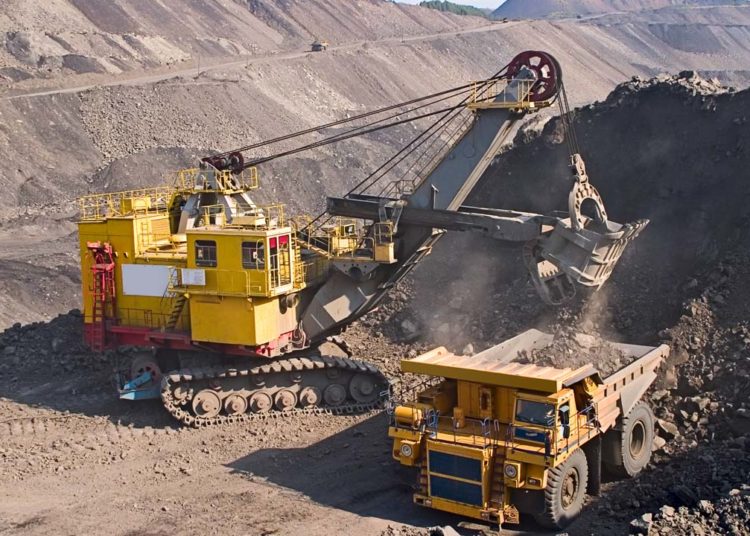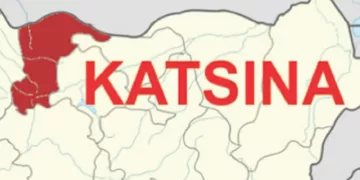For decades that oil has remained the mainstay of Nigeria’s economy, the solid mineral sector has been in such the shadows. For a nation hooked on the free-flowing crude oil, no thanks to the massive global appetite for the unique liquid which kept the wheels of world economy grinding, it is not surprising.
As such, the slightest upheaval in the oil extractive sector sends a shock wave through the nation just as we have been seeing in the last few weeks following the outcry over heightened crude oil theft.
Without doubt, as much as the oil sector has for years become the live wire of our economy, activities in the sector have increasingly remained opaque bordering on the mysterious to even most players in the industry.
However, with the focus on oil, little attention is paid to the lucrative solid mineral mining sector. Sadly, this sector has suffered as much rot if not worse despite being a huge money spinner.
It is often said that Nigeria is blessed with lots of mineral resources. The solid mineral sector proves this right as virtually every state has one mineral or the other buried under its soil.
For instance, according to the 2016 Mining Growth Roadmap by the Ministry of Mines and Steel Development, Nigeria has an untapped 200 million ounces of gold, scattered across about 13 states. This is just for gold alone.
In fact, the Director-General of the Nigerian Geological Survey Agency, the agency saddled with the responsibility of generating the geoscience data, Dr Abdulrazaq Garba, had once revealed that there are about 44 mineral types in 450 locations across the 774 local governments.
According to him Nigeria has “very vast” gold with occurrences in Niger, Osun, Kebbi, Kaduna, Kogi, Kwara, Zamfara, Katsina, Kano, Nasarawa and Bauchi states and the Federal Capital Territory, while Wolframite has occurrences in Kaduna, Kano, Bauchi, Niger, Kwara, Zamfara and Nasarawa states same way Lithium has “vast” occurrences and could be found in Nasarawa, Kwara, Kaduna, Niger and Zamfara states.
In Ebonyi, Zamfara, Plateau states, some parts of Benue State and the FCT, there is silver, while Copper associated with minerals like lead could be found in Bauchi, Zamfara, FCT and parts of Nasarawa State.
There are also platinum group elements, cobalt and graphite from geophysical investigation.
NEITI also added that mineral occurrences in Nigeria include granite aggregate, Laterite, Coal, Shale, Columbite, Tin Ore, Gypsum, Feldspar, Marble, Dolomite, Tantalite, Kaoline, Fluorite, QUARTZ, Basalt, Talc, Manganese, Barites, Zircon, and precious stones like Tourmaline, Topaz, Sapphire, Amethyst and Garnet.
But it does end there. The unfortunate tales of untapped resources are as worrisome as the losses in the mining sector.
In most of these states, if not all, illegal mining is rife and it appears to have come to stay, denying the nation of enormous revenue.
In 2017, the federal government lamented that the country lost about $9billion in two years on illegal mining particularly on gold exportation.
This was revealed by the then minister of Mines and Steel Development, Dr. Kayode Fayemi while briefing State House correspondents after one of the weekly Federal Executive Council.
Also the Director, Technical, Nigeria Extractive Industry Transparency Initiative, Dr Dieter Bassi, has said Nigeria is losing $2bn-$3bn to illegal mining.
That a country struggling to make ends meet financially would not pay much heed to this sector is preposterous to say the least.
Agreed, the Federal Executive Council, FEC, had approved the procurement of 50 Hilux Vehicles to be distributed to states through the Special Mines Surveillance Task Force to put a stop to the illegal business. But as a newspaper we believe there is still so much that should be done in this sector.
We are also not unmindful of how much of a precarious terrain this sector is as, just like the oil sector, it involves a lot of foreign actors bent on undermining the sector so that their illicit mining can continue while the country continues to hemorrhage financially.
It has been said in some quarters that the armed activities in some states are only a reflection of the tensions around mining sites.
We won’t gloss over the recent effort by the Economic and Financial Crimes Commission (EFCC) in tackling this illegal mining issue especially in the Ilorin Zonal Command of the anti-graft agency led by Mr Michael Nzekwe. The command has made some high profile arrests.
So far no less than 90 suspected illegal miners have been arrested in Kwara State, a rare feat in this highly criminalized sector.
Commendably, in our opinion, the command has received backing from the Kwara State government on the EFCC’s efforts in checking the activities of illegal miners and non-payment of royalties to the federal government.
We believe that more of such collaboration between states and anti-graft agencies as well as the military will help to, not just sanitize the system, but also help drive the nation’s income at a time it is in dire need of every kobo it can get from its land and seas.











